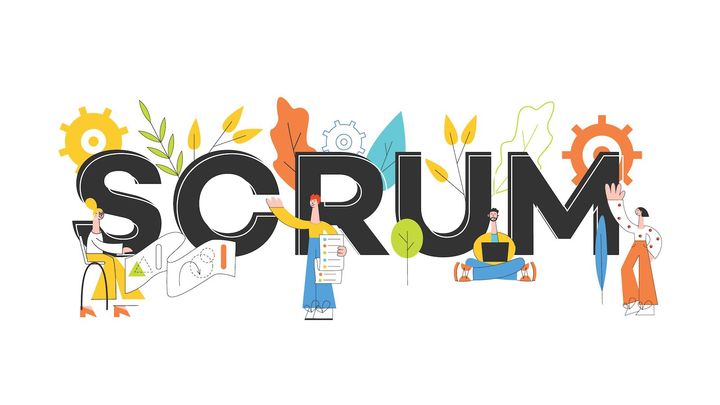
Jump To Section
The global pharmaceutical industry is undergoing a profound transformation, fueled by the unprecedented power of artificial intelligence (AI).
I recently had the pleasure of interviewing AI expert Nitesh Soni for an episode of Behind the Growth to discuss how this transformation is unfolding, from drug discovery to patient care.
Nitesh is a recognized leader in data science and AI with experience across various sectors, including finance, pharmaceuticals, and academia. He’s known for his impactful business engagements and has notably contributed to projects that have reached global acclaim. He’s currently helping Sanofi, one of the world’s leading pharmaceutical companies, move forward by leveraging data and AI at scale.
In this article, we’ll explore the key takeaways from my conversation with Nitesh, uncovering how AI is transforming global pharma and offering a glimpse into the future of this exciting field.
Drug Discovery and Development: Accelerating the Future of Medicine
Nitesh emphasizes that AI is playing a major role in accelerating drug discovery and drug development. He points out that “[Four or five] years back, these things were taking way longer because of limited AI computer or limited algorithms.”
But advancements in AI technology are rapidly changing the game.
AI’s Role in Target Identification and Drug Repurposing
AI algorithms are now being used to expedite target identification — the process of pinpointing specific molecules that could be targeted by new drugs. By analyzing vast datasets of genetic information, chemical structures, and clinical trial data, AI can identify promising drug candidates far more efficiently than traditional methods.
Furthermore, AI is proving highly effective in drug repurposing — finding new uses for existing medications. AI algorithms can sift through mountains of data to identify potential new applications for existing drugs.
Nitesh notes that this approach is gaining traction in the industry as it can significantly shorten development timelines and reduce the costs associated with bringing new treatments to market.
Personalized Medicine: Tailoring Treatments with AI Insights
Nitesh also highlights the growing importance of personalized medicine, an approach where treatments are tailored to individual patients based on their unique genetic makeup, lifestyle, and other factors.
AI is a fundamental enabler of personalized medicine, as it can analyze complex patient data, including genetic profiles and medical histories, to identify the most effective therapies for each individual.
He says, “[We should focus on] creating a more personalized experience for our patients and healthcare providers. It’s more like our LinkedIn or Facebook where you start getting your personalized recommendations. That’s what we are doing in the commercial area — basically, how we can build more next best actions, more targeted information for our customers and patients.”
Revolutionizing Manufacturing and Supply Chain Management
Beyond drug discovery and development, AI is making a significant impact on pharmaceutical manufacturing and supply chain management. Nitesh is particularly excited about the potential for AI to streamline these critical processes, making them more efficient, reliable, and responsive to global demand.
Optimizing Manufacturing Processes with AI
Nitesh highlights AI’s role in automating and optimizing various aspects of pharmaceutical production.
He states, “How we can standardize and streamline the manufacturing process by leveraging AI, how we can automate a lot of things in that space, how we can optimize for example, yield optimization is important because that impacts your supply chain and demand.”
AI-powered systems can monitor production lines in real-time, detecting anomalies and potential issues before they escalate. Predictive maintenance, powered by AI algorithms, helps manufacturers anticipate equipment failures, reducing downtime and ensuring smooth operations.
AI can also play a role in quality control, analyzing product characteristics to identify defects and maintain high standards.
Intelligent Supply Chains: Meeting Global Demand
AI’s impact extends beyond the factory floor, reaching into the complex networks that distribute pharmaceuticals globally.
By leveraging AI’s ability to analyze vast amounts of data, pharmaceutical companies can create more intelligent supply chains. AI algorithms can track products in real-time, providing valuable insights into inventory levels, transportation routes, and potential delays.
This real-time visibility enables proactive decision-making, allowing companies to adjust production schedules, optimize distribution routes, and ensure that life-saving medications reach patients when and where they need them.
Transforming Commercial Strategies and Patient Engagement
AI’s impact on the pharmaceutical industry also reaches into the realm of commercial strategies and patient engagement. Nitesh highlights how AI is transforming pharmaceutical companies’ interaction with healthcare providers and patients, leading to more personalized and effective communication.
AI-Powered Marketing and Sales in Pharma
AI is revolutionizing how pharmaceutical companies market and sell their products. Nitesh, who leads the commercial pillar at Sanofi, explains that AI is being used to empower sales and marketing teams.
AI algorithms can analyze vast amounts of data on healthcare professionals, including their prescribing patterns, areas of expertise, and preferred communication channels. This allows companies to target their marketing efforts more effectively, delivering relevant information to the right physicians at the right time.
AI-powered tools can also help sales representatives personalize their interactions with physicians, providing tailored information and recommendations.
Enhancing Patient Engagement and Adherence
AI is also playing a growing role in enhancing patient engagement and medication adherence.
By leveraging AI-powered communication tools, pharmaceutical companies can provide patients with personalized information, support, and reminders. This aligns with the industry’s broader focus on creating a more personalized experience for patients, as Nitesh notes.
AI-powered chatbots can answer patients’ questions about their medications, potential side effects, and treatment plans. These chatbots can provide 24/7 support, improving accessibility and convenience for patients.
Additionally, AI can be used to develop personalized medication reminder systems, helping patients stay on track with their treatment regimens and improving health outcomes.
The Future: Compound AI and Responsible Development
As AI continues to evolve, its impact on the pharmaceutical industry is only going to grow more profound. Nitesh highlights two key trends shaping the future of AI in pharma: the rise of compound AI systems and the increasing importance of responsible AI development.
The Rise of Compound AI Systems
Nitesh believes that the future of AI in pharma lies in “the compound AI system, which is a combination of your traditional AI plus generative AI.”
He suggests that combining traditional AI with generative AI will unlock new possibilities, allowing companies to tackle more complex challenges and develop even more innovative solutions.
Generative AI, a relatively new field, focuses on creating new content, such as text, images, and even code. Integrating generative AI into traditional AI systems could lead to breakthroughs in areas such as drug design, where AI could generate novel drug candidates, and personalized medicine, where AI could create customized treatment plans tailored to individual patients.
Ethical Considerations and Responsible AI in Pharma

As AI becomes more integrated into pharmaceutical operations, Nitesh emphasizes the crucial importance of ethical considerations and responsible AI development.
He states, “Putting better internal control to build safe and responsible AI. And the last thing I think we did not touch that strongly is always paying strong attention to data quality and data governance because without that, you cannot build your trustworthy AI.”
Ensuring data privacy and security is paramount, especially when dealing with sensitive patient information. Mitigating bias in AI algorithms is crucial to prevent unfair or discriminatory outcomes in areas such as drug development and patient selection for clinical trials.
Transparency in AI development is also essential, building trust in these powerful technologies and allowing for greater accountability.
Takeaway
The conversation with Nitesh Soni reveals that AI is a fundamental shift in how the pharmaceutical industry operates and serves patients worldwide. From accelerating drug discovery to personalizing treatment plans, AI is poised to revolutionize every aspect of global pharma.
If you found these trends insightful, be sure to tune into the full episode of Behind the Growth for a conversation you do not want to miss! Nitesh shares even more valuable insights into the future of AI in pharma and offers practical advice for companies looking to leverage these transformative technologies.
Link to podcast
The Impact of AI on Global Pharma
You can also tune in on your favourite channel:



